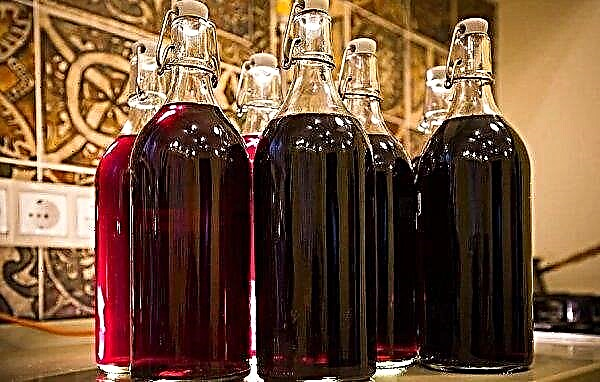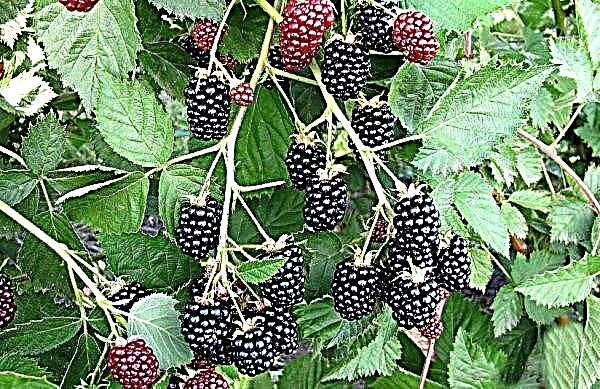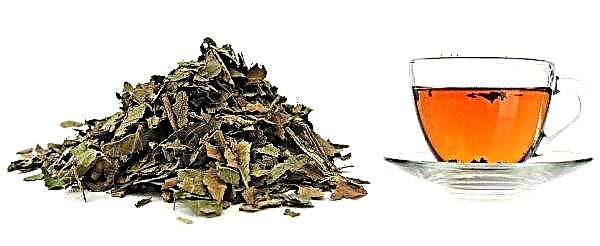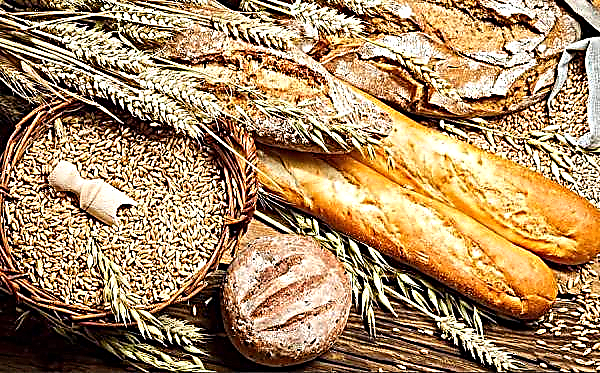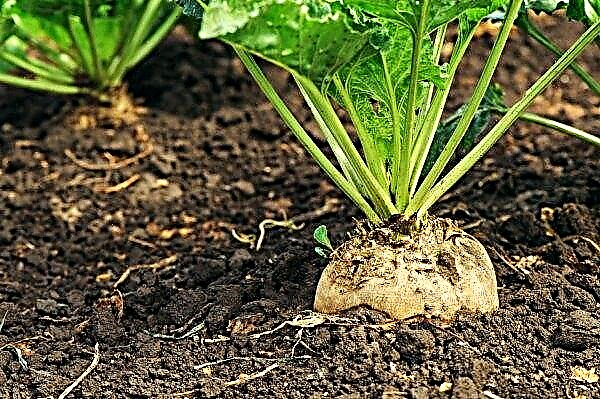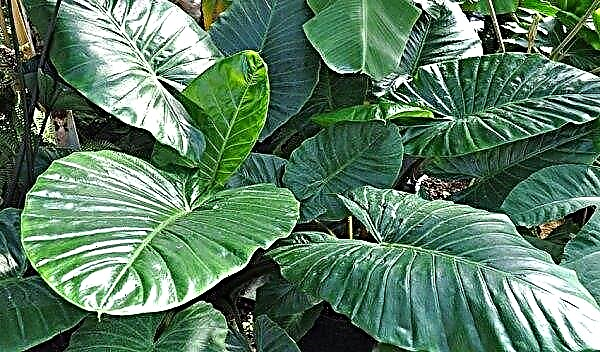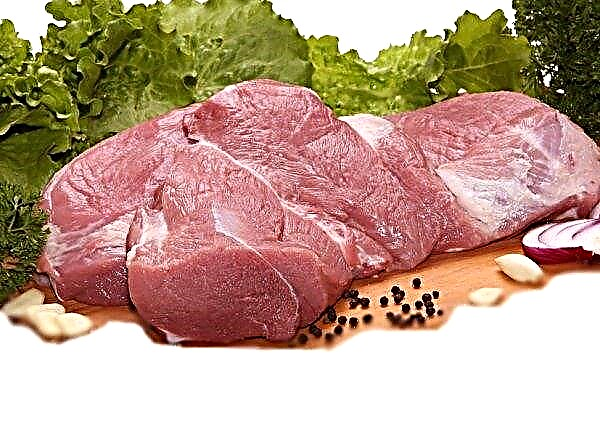The spread of world cuisines beyond national borders broadens the horizons and taste preferences of gourmets and lovers to taste something new and unusual. So, over the past few decades, Japanese cuisine has become very popular all over the world, traditional dishes are prepared not only in restaurants, but also at home, and they have entered the usual diet of many people, regardless of their nationality and age. Pickled ginger has become a highlight not only of traditional sushi sets, but also has been successfully used as a seasoning for other dishes. The benefits of the product, the methods of its use and the effect on the body will be discussed in this article.
Chemical composition, nutritional value, calorie content
By the number of trace elements and vitamins that make up ginger, you can immediately understand that this is a very useful culture, because it contains:
- vitamin complex of group B, namely: B1, B2, B4, B5, B6, B9;
- vitamins K, E;
- ascorbic, nicotinic, folic, caprylic, oleic and pantothenic organic acids;
- amino acids: asparagine, valine, tryptophan;
- alpha tocopherol;
- choline;
- folates;
- fructose and sucrose;
- minerals: iron, copper, zinc, selenium, manganese, sodium, calcium, potassium, phosphorus;
- essential oils, most of which are zingiberin.

The calorie content of fresh ginger is extremely low and amounts to 42.12 kcal, pickled - 51 kcal.
In 100 grams of the product there are:
- proteins - 0.51 g;
- fats - 0.40 g;
- carbohydrates - 11.88 g.
Nutrition experts recommend using a spicy culture, in the absence of contraindications, based on a maximum of 2 grams per 1 kg of body weight. However, this amount of product should be distributed in 3-4 doses, since the plant contains a very large number of concentrated substances, the use of which at a time is undesirable.
Did you know? Due to its healing power, ginger received poetic names - “Samurai Sword”, "The root of power", "Golden Warrior", and for the first time the plant was found in the foothills in northern India more than 5 thousand years ago.
What determines the color: white, pink (red)
On the shelves of stores you can often find white, pink or, as it is also called, red healing root and the question may arise, what is the difference.

A distinctive feature of these types of ginger is the variety of raw materials and the method of pickling. In its natural form, the product has a white, slightly cream color, and in the process of pickling it can acquire:
- yellow or white (when adding rice or wine vinegar);
- pink or red - when using beets or wine.
Pink ginger differs in taste from white, but its properties and benefits remain unchanged. In pink seasoning a little more than vitamin B1 and magnesium, in white - zinc prevails.
Useful properties of pickled ginger
The popular Japanese root crop is easily recognized by its unique aroma, due to the high concentration of essential oils that have a positive effect on the human body.
 The root is recommended to use both fresh and pickle.
The root is recommended to use both fresh and pickle.
You can find out about the benefits of this product and its healing properties by reading the information below.
- Increases the protective functions of the body, strengthens the immune system.
- Reduces nervous tension.
- Extends the vital resources of the body.
- It has a positive effect on sexual energy and increases attraction in both men and women.
- Thanks to the use of the product, it is possible to eliminate the problems associated with the gastrointestinal tract and kidneys.
- Pickled root vegetables - a means to thin the blood, improve blood supply to the brain.
- The antibacterial property of the product is very clearly revealed at its most popular use in sushi, since the substances that make up the root destroy the bacteria that can be found in raw fish used in the preparation of a popular Japanese dish.
- It has analgesic and anti-inflammatory effects on the body.
- Helps improve hair growth.
- Cleans the airways.
- Prevents Alzheimer's.
- An active antioxidant that is recommended for use by people with cancer.
- Strengthens the heart muscle.
For weight loss
Slimming - A common reason for using pickled ginger in food, since the active substances of the root crop activate and accelerate the metabolic processes in the body. The digestive system begins to work better, food juices are more actively produced, which contribute to the quality of digestion and assimilation of food, and excess fluid is removed from the tissues. The body is cleansed of toxins, toxins, no fat deposits are formed.
For pregnant and lactating women
Since ginger has a very active effect on the state of the whole organism, during pregnancy and lactation, a woman should be careful when taking it.

Ginger capsules, with a specific dosage of the substance, can help eliminate the symptoms of toxicosis in early pregnancy. But it is worth taking such drugs only after consulting a doctor.
Important! Ginger is a unique treatment for infertility. It has a positive effect on the female body, due to which the menstrual cycle is stabilized and ovulation occurs.
It is permissible to take pickled root vegetables in food only in the 1st and 2nd trimesters of bearing a child, during the last - the active substances of a herbal remedy can cause a miscarriage, as they increase the tone of the uterus.
- If we talk about the effect on women's health in general, it is important to note that the product:
- increases sexual desire;
- eliminates inflammatory processes in the body;
- increases the tone of the uterus;
- prevents the onset of cystitis and urethritis, chronic inflammation of the genitourinary system;
- It has a rejuvenating effect on the body.
For men
Spicy pickled ginger should include every man who wants to be active and healthy in his diet.

- This product has a significant positive effect:
- on the potency and activity of sperm;
- on the blood supply to the brain, due to which mental stress is relieved and work efficiency is increased;
- on internal processes to eliminate the inflammation of the genitourinary system, prostatitis, impotence, and is also used not only as a treatment for diseases, but also for preventive purposes.
In folk medicine
Japanese traditional medicine advocates the use of ginger in food in various forms, for example, as an additive in tea or as an addition to traditional rolls, as a seasoning in the process of preparing various dishes, sweets.

Actual use of ginger in old age, when the body needs additional support of vitality. In this case, the plant can have the following effects on the body:
- promotes blood thinning;
- lowers cholesterol;
- stabilizes blood pressure;
- activates metabolism;
- It has a rejuvenating effect.
In winter
In the cold season, it is recommended to use ginger as an ingredient in drinks, since it brings a piquant and slightly spicy flavor, providing a warming effect. The preparation of such drinks is not difficult, ginger is either grated or cut into thin slices, and then added to the liquid, which is insisted or boiled for a short time, so that it can absorb the maximum natural benefits of the product.
 The use of ginger in the season of colds and viral infections can increase the protective functions of the body.
The use of ginger in the season of colds and viral infections can increase the protective functions of the body.
For diseases
Ginger in various forms is actively used to treat chronic and acute forms of many diseases, it is also taken in preventive measures to maintain the vitality of the body.
Gastritis
Gastrointestinal problems occur in many modern people. It is possible to normalize the work of the stomach, to establish the proper functioning of the digestive system, by eating pickled ginger. The thing is that the product stimulates the production of gastric juice and activates all digestive processes. There is a deliverance from flatulence.

But you should know that gastritis is an inflammatory process of the mucous membrane of the walls of the stomach, as a result of which his work is disturbed, therefore, taking hot seasoning is possible only taking into account the level of acidity of the gastric juice, which is observed in the patient and consultation with the doctor:
- with increased: ginger can be consumed in small portions after heat treatment, for example - ginger water or tea;
- with reduced: it is recommended to take ginger water with honey, which will help normalize the level of acidity, remove toxins from the body and restore intestinal microflora, which may result from problems with protein processing in the body as a result of a deficiency of hydrochloric acid.
Important! Use of pickled ginger for gastritis is allowed only during the period when the disease is in remission.
Diabetes
The systematic use of useful substances in a vegetable storehouse can have a beneficial effect on the whole body and, in particular, help to lower blood sugar levels, even when using small portions in cooking.
Pancreatitis
Ginger acts on the pancreas as follows: the intensity of the secretion of the stomach and pancreas increases due to substances such as gingerol and essential oils that are part of the plant composition.

The exciting, irritating effects of ginger can aggravate the inflammatory process, both in acute and in chronic forms, therefore its use is not recommended by official medicine. The harm from the product can be significant: from edema to necrosis of the gland, which are accompanied by severe pain.
Hypertension
The use of pickled root has a beneficial effect on the state of blood vessels and the heart system due to the high concentration of calcium and magnesium. As a result of the systematic use of the product, the level of cholesterol in the blood decreases, it liquefies, which reduces the risk of blood clots.

These factors have a normalizing effect on blood pressure, the performance of which is significantly reduced. But one should not expect a significant improvement in the condition without taking appropriate medications in “acute” situations and in stages 2 and 3 of the disease, when ginger products can only perform a supporting function.
Gout
Ginger can also help with inflammatory processes in the joints, for which it is used as an independent product or one of the many components in the preparation of various drinks.

The use of tea drinks or spicy water can help reduce inflammation, normalize the immune system, which help alleviate the condition of the patient. The substances in the plant accelerate the elimination of toxins and decay products from the body, normalizing metabolic processes.
Common cold
The treatment of colds with ginger is one of the most famous ways to use it at home, since its use has the following effects:
- enhances human immunity;
- successfully fights pathogenic microflora in the body;
- prevents the development and spread of infections in the body;
- enhances sweating, which helps reduce body temperature.

The root crop can be used:
- with sore throat;
- with a runny nose;
- from dry and wet cough - thanks to the mucolytic effect.
Cooking recipes
The recipe for pickled ginger is quite simple, but the taste of the final product depends on the marinade, which is used in the cooking process. There are many recipes, but you should pay attention to the most popular types.
Classical
Ingredients:
- ginger root: 100 g;
- rice vinegar: 50 ml;
- salt: 2 tsp .;
- sugar: 3 tbsp. l
Cooking Technology:
- Prepare the marinade, for which it is necessary to mix rice vinegar, salt and sugar and bring the mixture to a boil.
- Peel the ginger root and cut into thin chips.
- Pour it with marinade.
- Leave to insist for 3-4 days in a closed container in the refrigerator.
Japanese
Ingredients:
- ginger root: 100 g;
- rice vinegar: 100 ml;
- water: 50 ml;
- sugar: 2.5 tbsp. l

Cooking Algorithm:
- Peel the root and cut into thin slices.
- Boil the ginger in water for 2 minutes.
- Drain and dry the product on a towel.
- Mix rice vinegar, sugar and water. Stir the marinade ingredients thoroughly until sugar is completely dissolved.
- Pour ginger slices with marinade and insist in a closed ceramic or glass container for 5-6 days.
Important! Pickled ginger can be stored in the refrigerator in a closed ceramic or glass container for 3-4 months without losing its useful qualities.
Can I use ginger for children
The opinion of pediatricians regarding the benefits of using ginger in infancy varies. For example, representatives of oriental medicine allow the intake of a herbal product with the introduction of complementary foods for infants, since the product has a positive effect on the intestines of babies, eliminating colic and prevents the occurrence of constipation.
Modern European doctors are inclined to believe that seasoning has a very intense, irritating effect on the mucous membranes of internal organs, can provoke increased salivation and therefore allow ginger to be taken in small portions only from 1.5-2 years of age.

Most often, children are given decoctions or tea with the addition of ginger, which help to cure respiratory diseases, bronchitis. Essential oils are used as a means for inhalation in case of viral diseases and cough. Ginger drinks can help with:
- nausea and vomiting
- digestive disorders.
Did you know? The word "gingerbread" appeared in Russian due to the appearance of spicy gingerbread mats that merchants brought from European countries.
Risk factors and contraindications
- Contraindications to the use of ginger may be as follows:
- acute pathological conditions of the gastrointestinal tract, such as: ulcer, gastritis, pancreatitis;
- third trimester of pregnancy and lactation;
- heart attack and stroke;
- insomnia;
- individual intolerance, allergic reaction to the product.

- With excessive use, you may experience:
- heartburn;
- diarrhea;
- vomiting
- weakness;
- increased sweating.
Ginger has a wide range of beneficial properties due to its rich vitamin and mineral composition, essential oils and amino acids. The use of the product can contribute to the cure of many diseases, however, it is necessary to use the plant in dosage, in order to prevent an excess of active components in the body that are part of the raw and pickled ginger root.


